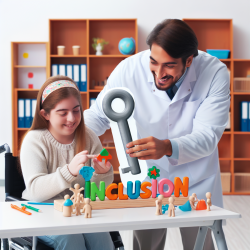Hey there, wonderful speech therapists! If you’re reading this, you’re probably gearing up for another round of IEP (Individualized Education Program) meetings. These meetings can sometimes feel daunting, but they don’t have to be. With the right approach, IEP planning can be a joyful and fulfilling experience.
First things first, let's talk about preparation. Preparation is key to feeling confident and ensuring that the meeting runs smoothly. Here are some steps to help you prepare:
- Review the Student's File: Before the meeting, take some time to review the student's file. Look at their progress, past goals, and any assessments. This will give you a comprehensive understanding of where the student stands.
- Set Clear Goals: Think about what you want to achieve in the meeting. What are the key points you want to discuss? What goals do you want to set for the student? Having a clear agenda will help keep the meeting focused and productive.
- Collaborate with Colleagues: Don’t hesitate to reach out to other professionals who work with the student. Their insights can be invaluable and can help you create a more comprehensive plan.
Now, let's move on to the meeting itself. Here are some tips to make the meeting a positive and productive experience:
- Foster a Positive Atmosphere: Start the meeting on a positive note. Share some successes or positive observations about the student. This sets a positive tone and helps everyone feel more comfortable.
- Encourage Participation: Make sure everyone has a chance to speak and share their thoughts. This includes the student, if appropriate. When everyone feels heard, the meeting is more collaborative and effective.
- Be Flexible: While it’s important to have a plan, be open to making adjustments based on the input you receive during the meeting. Flexibility can lead to more personalized and effective plans.
Finally, let’s talk about follow-up. The meeting doesn’t end when everyone leaves the room. Here’s how to keep the momentum going:
- Document Everything: Make sure to take detailed notes during the meeting and document any decisions made. This will be crucial for tracking progress and making any necessary adjustments down the line.
- Communicate Regularly: Keep the lines of communication open with the student’s family and other professionals. Regular updates can help ensure that everyone is on the same page and working towards the same goals.
- Celebrate Successes: Don’t forget to celebrate the student’s successes, no matter how small. Positive reinforcement can be incredibly motivating and can help keep the student engaged and excited about their progress.
At TinyEYE, we understand the unique challenges and joys that come with IEP planning and meetings. Our online speech therapy services are designed to support you every step of the way, providing you with the tools and resources you need to make a positive impact on your students' lives. Whether you're looking for telepractice jobs or simply want to enhance your current practice, we're here to help.
Remember, IEP meetings are an opportunity to make a real difference in a student’s life. With the right approach, they can be a joyful and rewarding experience for everyone involved. Happy planning!










